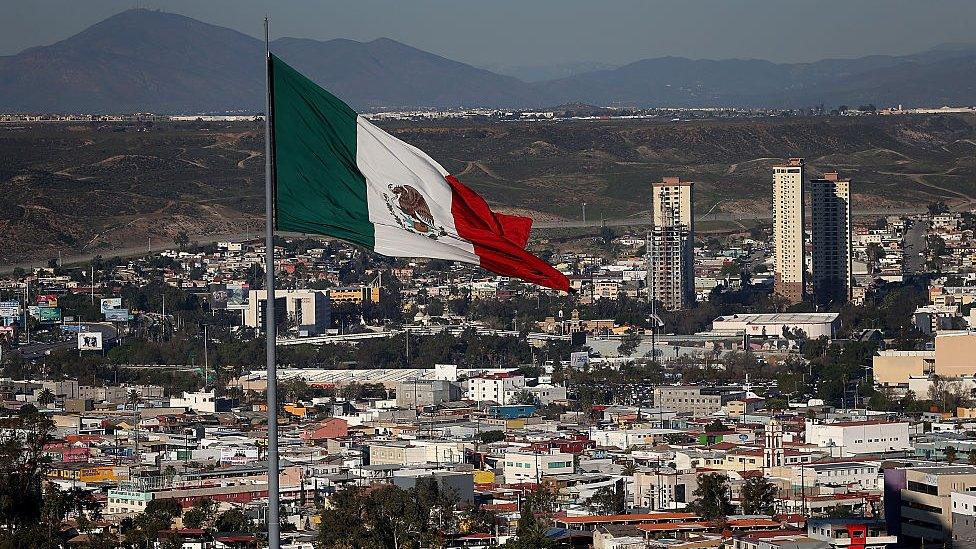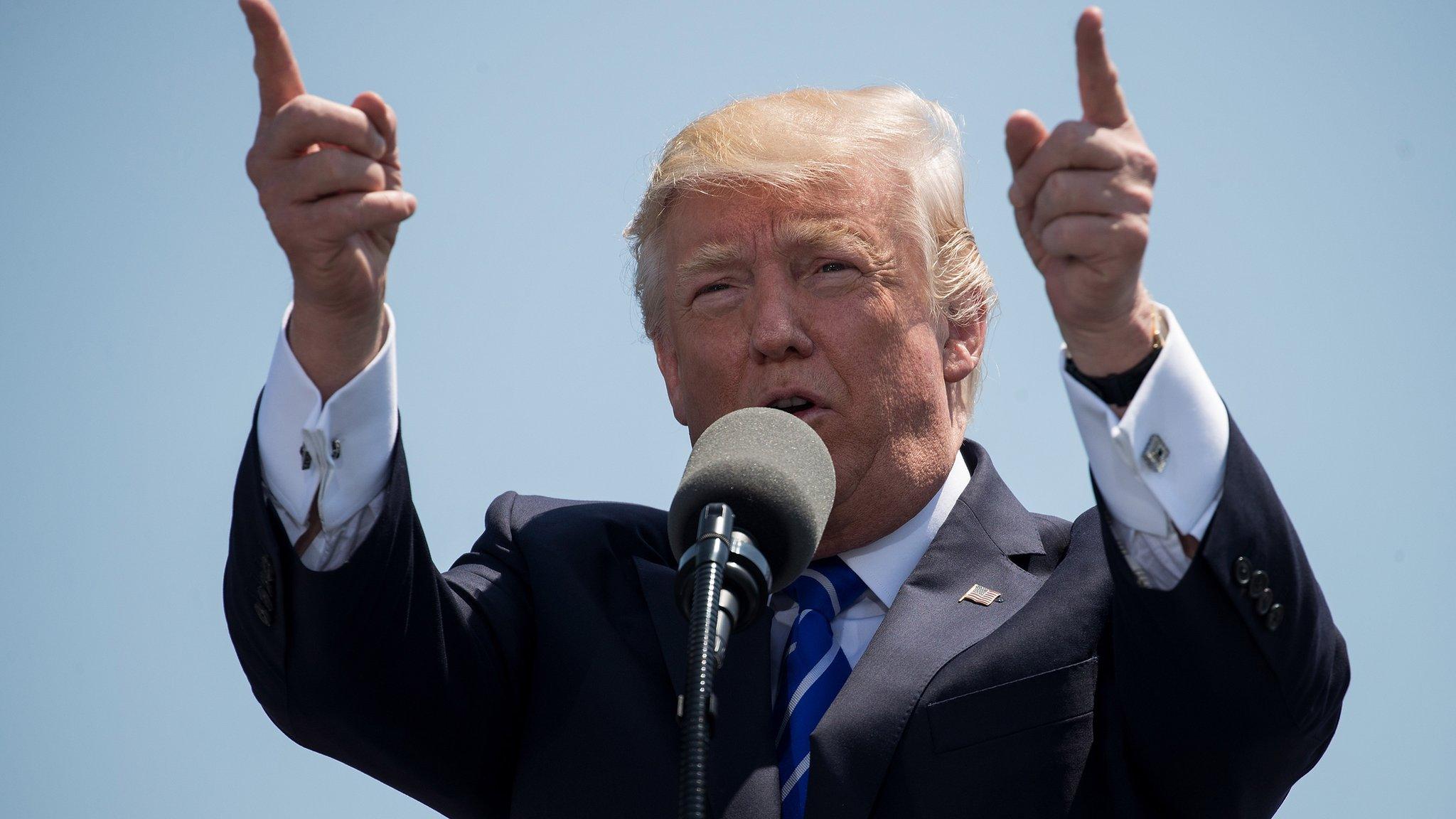US calls for smaller deficits in new Nafta talks
- Published

The US has a $64 billion trade deficit with Mexico
The US government says trade deficits and market access will top the agenda as it renegotiated trade terms with Mexico and Canada.
US President Donald Trump has described the North American Free Trade Agreement (Nafta) as a "disaster" and ordered fresh talks earlier this year.
The objectives have been released in advance of the start of meetings with Canada and Mexico next month.
Economists have warned that reaching the goals might be difficult.
A fair deal for the US
The US Trade Representative said that the balance of trade with Mexico had gone from a $1.3bn surplus to a $64bn deficit since the agreement took effect in 1994.
"Too many Americans have been hurt by closed factories, exported jobs, and broken political promises" said Robert Lighthizer, promising that his department would now "negotiate a fair deal".
He added the current agreement was ill-equipped to tackle issues blocking access of US dairy, wine, grain and other products to the Canadian market.
The US said other objectives included:
strengthening labour and environment obligations that are currently in NAFTA side agreements
scrapping unfair subsidies
adding a focus on the digital economy
cutting market-distorting practices by state-owned enterprises
ending restrictions on intellectual property
Realistic goals
Mexico and Canada have both said they would push their own agendas at the talks.
"Mexico's government is working to achieve a constructive negotiation process that will allow trade and investment flows to increase and consolidates cooperation and economic integration to strengthen North American competitiveness," the Mexican Economy Ministry said in a statement.
The Canadian government said it was continuing to consult with Canadians about the renegotiation, and promised to defend its national interest at talks.
Many economists agree the trade pact can be updated and improved, but have warned that it could be very difficult to achieve every goal.
"If one is trying to conclude these talks very quickly, you're not going to be able to cover everything that's in this long list of objectives," said Jeffrey Schott of the Peterson Institute for International Economics.
He said it could be difficult to reduce bilateral trade deficits because negotiators had a limited ability to affect the private buying decisions of companies and consumers.
- Published19 May 2017

- Published27 April 2017
